22 Types of Watches Every Watch Lover Should Know
For centuries, watches have been more than just timekeepers – they are fashion statements, status symbols, and collectible works of art. From simple and affordable timepieces to complex mechanical marvels, watches appeal to a wide range of tastes and budgets. For watch enthusiasts, knowing the differences between various watch types and styles is an important part of appreciating these miniature masterpieces.
In this post, we’ll explore 22 of the most popular and iconic watch types every watch lover should know. We’ll cover everything from classic dress watches to rugged outdoor watches. You’ll also learn about modern smartwatches, high-complication watches, and vintage styles.
Whether you’re a seasoned watch collector or just starting to learn about these portable time machines, this guide will help you identify and understand the most significant watch models. With knowledge of these 22 key watch types in your toolbelt, you can confidently participate in watch discussions and make informed buying decisions as your collection grows. So without further ado, let’s dive into the mesmerizing world of watches!
Contents
- Types of Watches Based on Display
- Types of Watches Based on Movement
- Types of Watches Based on Style and Function
- 1. Casual Watches (8)
- 2. Dress Watches (9)
- 3. Luxury Watches (10)
- 4. Dive Watches (11)
- 5. Pilot Watches (12)
- 6. Military Watches (13)
- 7. Racing Watches (14)
- 8. Sports Watches (15)
- 9. Chronometer Watches (16)
- 10. GMT Watches (17)
- 11. Moon-Phase Watches (18)
- 12. Open-Heart Watches (19)
- 13. Vintage Watches (20)
- 14. Pocket Watches (21)
- 15. Smartwatches (22)
- Conclusion
- FAQs:
Types of Watches Based on Display
- Analog Watches
- Digital Watches
- Hybrid Watches
- Tactile Watches
1. Analog Watches
Analog watches are the classic style with hour and minute hands pointing to numbers or markers on the watch’s face. This traditional design has stood the test of time and remains popular today. Analog watches have a timeless elegance and allow the wearer to quickly read the time with a glance at the position of the hands. Many watch enthusiasts appreciate the mechanical artistry of analog watch faces, with their intricate dials, textured patterns, and moving hands sweeping around the surface.
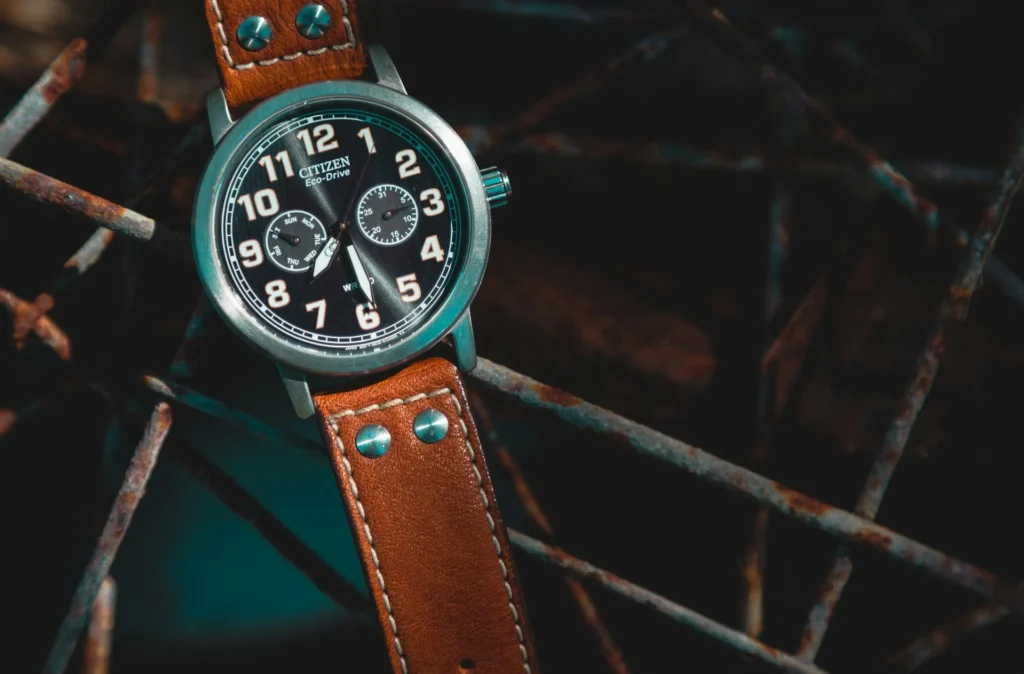
Analog watches can also have additional complications like sub-dials, day/date windows, and moon-phase indicators built into the watch’s face. Whether featuring a minimalist style or complex details, analog watches have an old-world charm that continues to be appreciated by watch lovers today.
2. Digital Watches
Digital watches display the time in a numeric format rather than using watch hands. They provide an exact, unambiguous reading of the time down to the second on an LCD or LED display. Digital watches first gained popularity in the 1970s and 80s for their futuristic appeal and precision time telling.
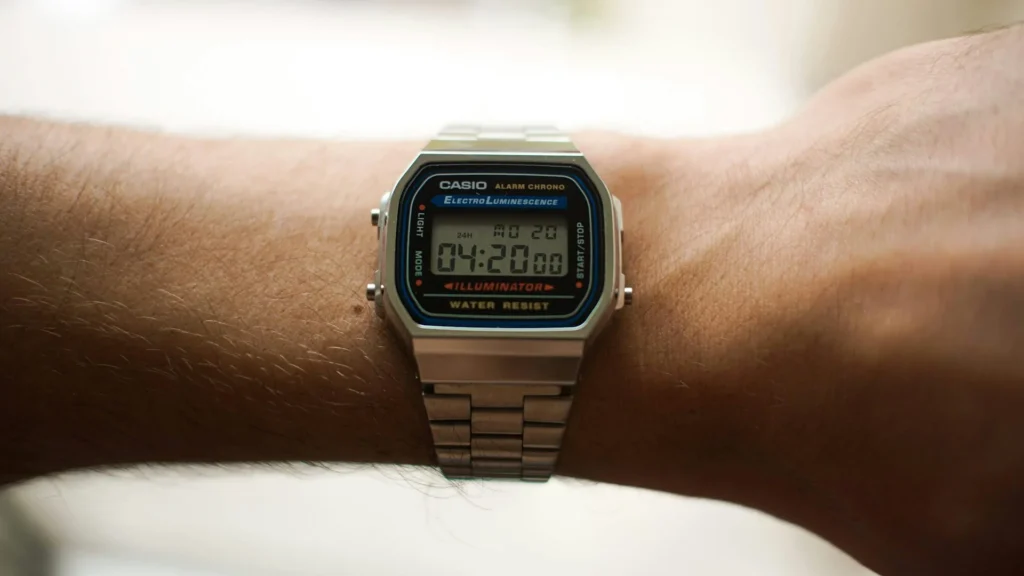
In 1972, Hamilton introduced the world’s first electronic digital wristwatch, the Pulsar Time Computer, which paved the way for this technology. While early digital watches had a simple design, modern styles are sleek and high-tech. Many digital watches today have useful features like alarms, timers, stopwatches, and time zone settings. With light-up displays, they offer excellent nighttime visibility.
Brands like Casio, Timex, and Garmin are known for making affordable and functional digital watches. Luxury watchmakers like TAG Heuer also offer high-end digital models crafted from premium materials. From sporty plastic cases to luxury steel models, digital watches remain practical timekeeping staples with a wide range of styles suiting different tastes and needs.
3. Hybrid Watches
Hybrid watches combine traditional analog displays with smart technology. The watch face features analog hands to tell time while adding a digital screen to enable connected features. These watches provide the classic aesthetics of analog dials along with useful functions powered by microprocessors and sensors.
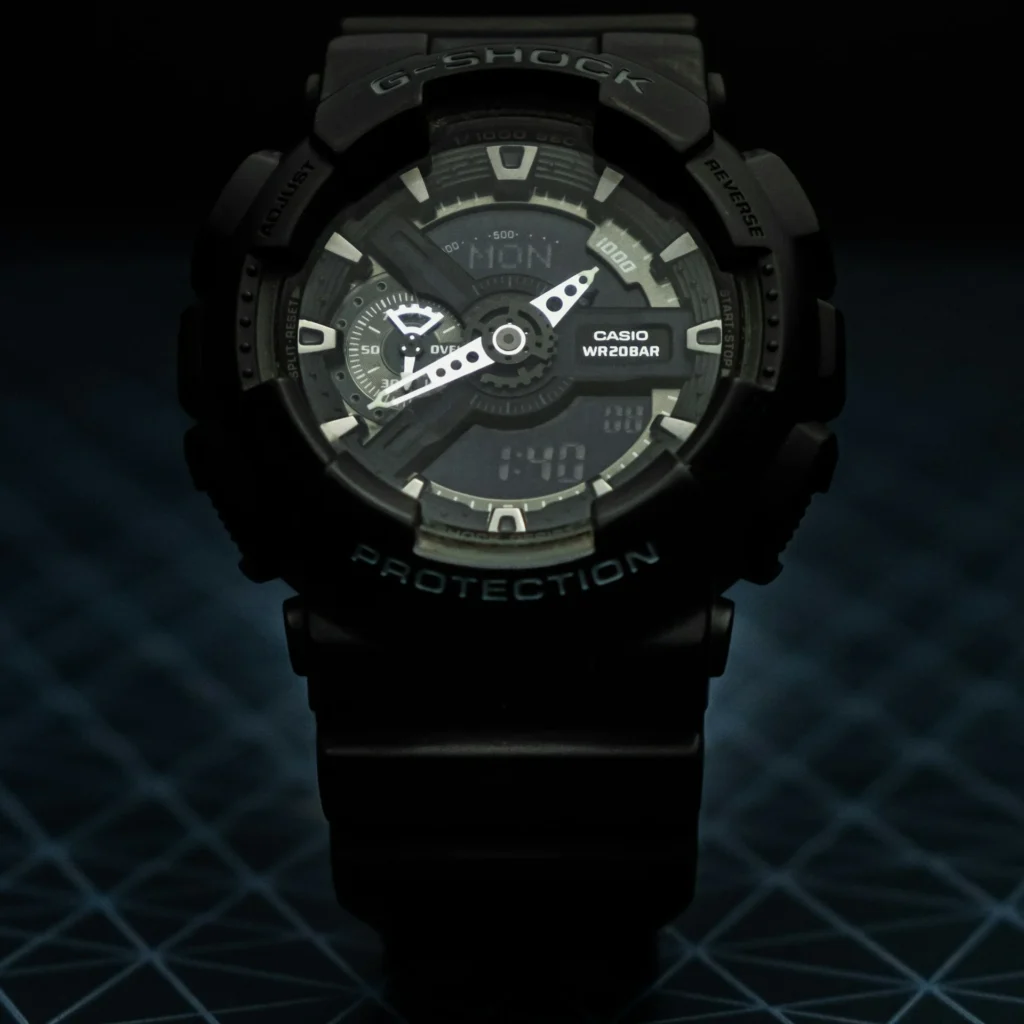
Hybrids often connect to smartphones to offer notifications, activity tracking, and other smart features. With their blend of old and new technology, hybrid watches appeal to those who appreciate the look of analog watches but also want the convenience of modern wearable tech.
Companies like Fossil, Garmin, and Casio make fashionable hybrid watches that add smart functionality without sacrificing timeless style. Hybrids deliver the best of both worlds for watch lovers who value elegant design but want to keep cutting-edge tech.
4. Tactile Watches
Tactile watches are designed with sight-impaired users in mind. They have textured, tactile hands that can be distinguished through touch instead of relying solely on visual time-telling. The hour markers are also raised or specially textured to be identifiable by feel.
Tactile watches use various methods to display time. Some of them have raised dots on the watch face that correspond with hours and minutes. Others use braille to convey the time. Additionally, some tactile watches use vibrations to indicate hours and minutes, while some come with inset magnets on the watch hands and case to help the wearer sense the hands’ positions.
Brands like Eone specialize in making attractive, high-quality tactile watches. Advanced models incorporate helpful audio cues and features. With intuitive tactile design, these watches empower those with visual disabilities to independently tell time while expressing their style. Tactile watches showcase that inclusive, thoughtful design can benefit all watch enthusiasts.
Types of Watches Based on Movement
There are numerous watch movements available, and each one has distinctive qualities and mechanisms. There are three main types of watches based on movement:- Quartz Watches
- Automatic Watches
- Solar-Powered Watches
1. Quartz Watches (5)
Quartz watches utilize quartz crystal oscillators to keep a very accurate time. This quartz movement powers the majority of modern watches. First introduced commercially in 1969 by Seiko, the quartz movement transformed watchmaking, providing cheaper and more reliable timekeeping.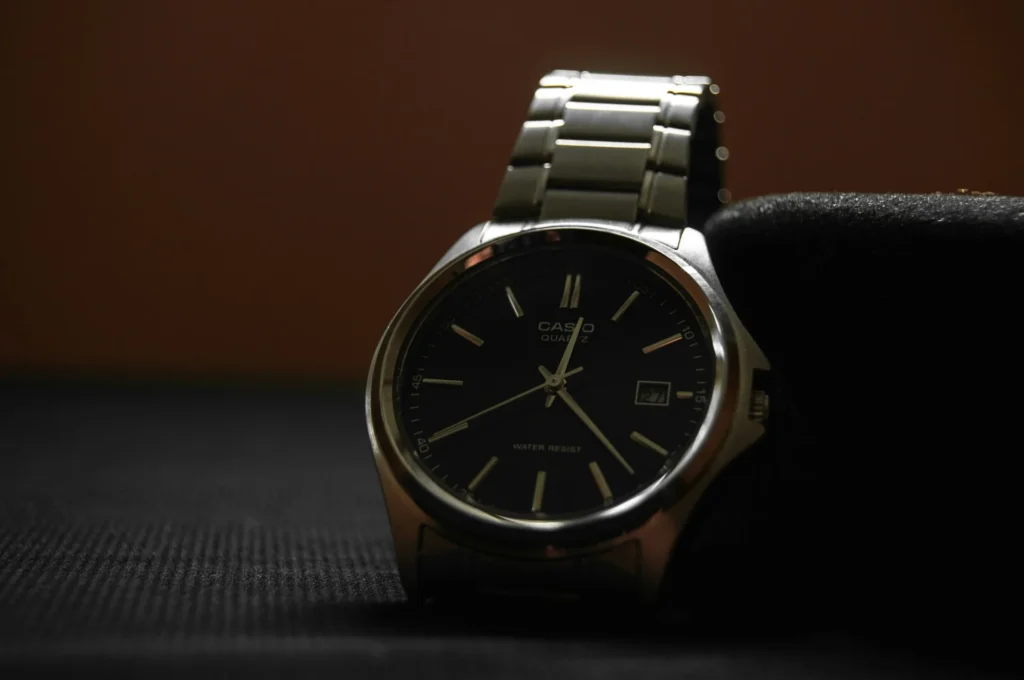
Quartz crystals vibrate at a precise frequency when energized, governing the movement of the watch hands. Quartz watches require a battery to operate and outperform automatic watches in accuracy, only losing about 10-15 seconds per month. With no need for winding or complex mechanics, quartz watches are affordable to produce and maintain.
They usually come in slimmer cases than winding watches. While luxury automatic watches still have cachet, quartz watches dominate the affordable watch market across fashion and sports styles thanks to their precision, practicality, and diversity of design.
2. Automatic Watches (6)
Automatic watches harness kinetic energy from the wearer’s wrist movements to power their mechanical movement. The rotating rotor inside winds the mainspring, eliminating the need for regular manual winding. First bought to the market in the 1920s, automatic winding made mechanical watches more convenient and helped them compete with emerging quartz technology in the 1970s.
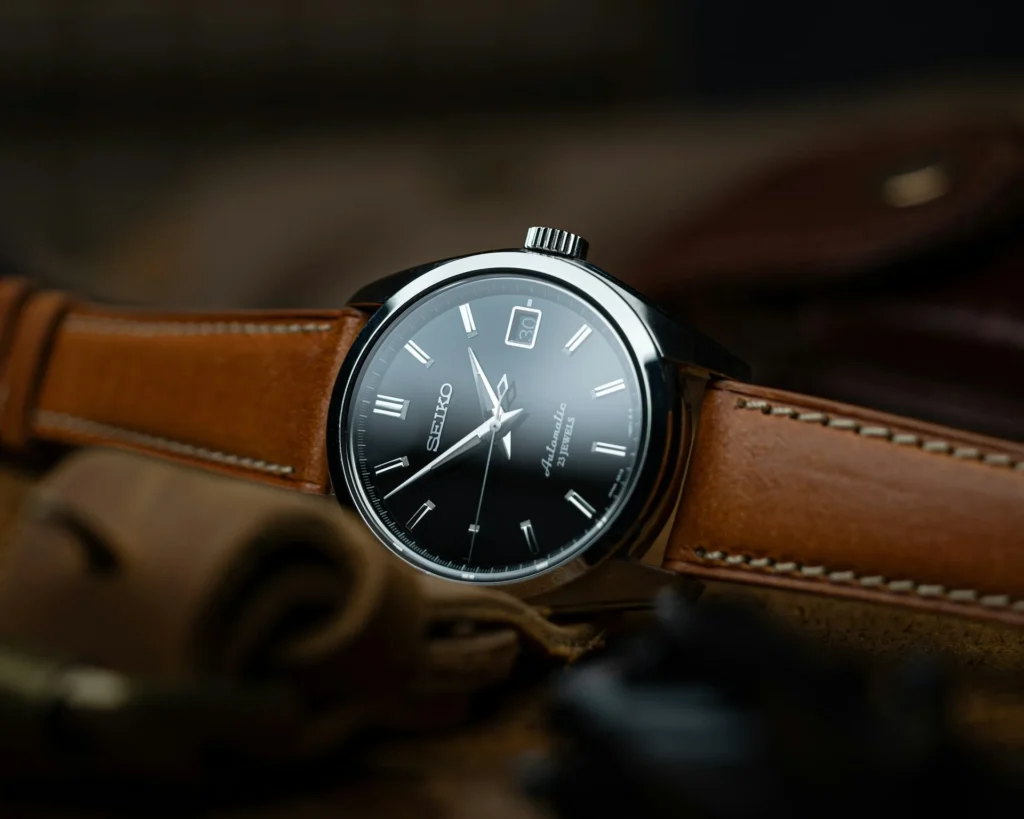
Luxury watchmakers often use customized rotors and transparent casebacks to showcase the self-winding mechanism. Automatic watches retain appeal for their craftsmanship, precision engineering, and convenient kinetic charging from natural wrist motion. However, they are less accurate than quartz watches and require periodic servicing. For mechanical watch purists, the compromise is worth it for the artistry and ingenuity of self-winding technology.
3. Solar-Powered Watches (7)
Solar-powered watches utilize photovoltaic cells to convert light into electricity that powers the watch. This renewable energy source charges the battery, eliminating the need for periodic battery replacements. With solar charging capabilities, these eco-friendly watches can operate indefinitely.
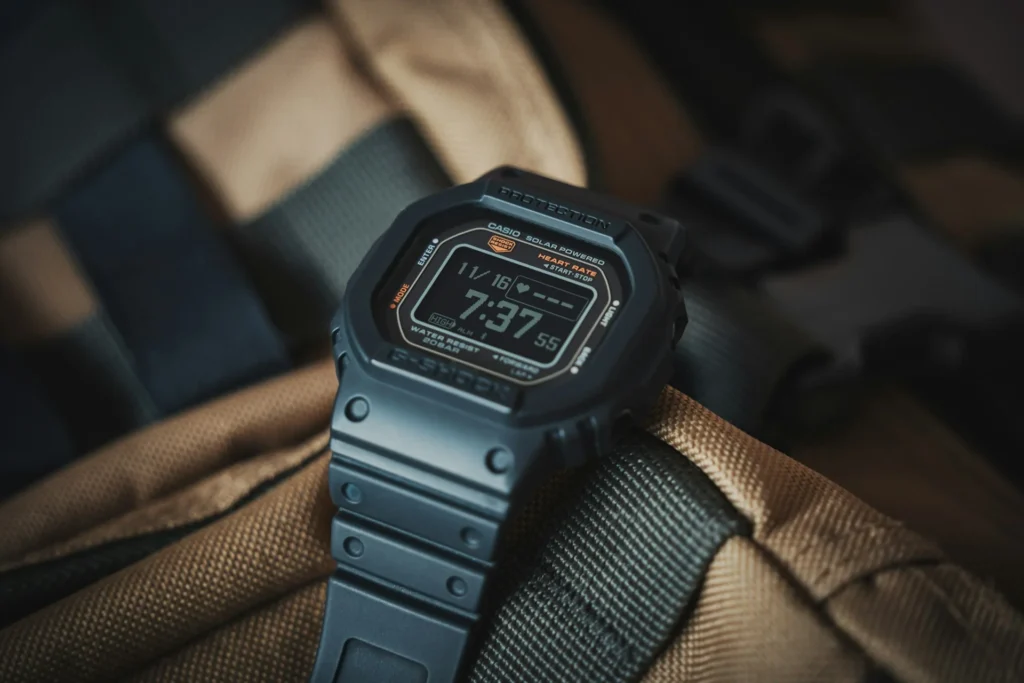
Solar technology was first incorporated into watches in the 1970s and has improved over time. Today, solar-powered watches use energy-efficient LCDs and long-lasting lithium-ion batteries to make the most of captured solar energy. They provide reliable, maintenance-free performance even in low-light conditions.
Brands like Seiko, Citizen, and Casio are known for making affordable solar watches with sleek, modern designs. High-end watchmakers like Breitling also offer luxury solar-powered models. With sustainable solar charging, this innovative watch technology is an eco-friendly choice for the environmentally conscious.
Types of Watches Based on Style and Function
- Casual Watches
- Dress Watches
- Luxury Watches
- Dive watches
- Pilot Watches
- Military Watches
- Racing Watches
- Sports Watches
- Chronometer Watches
- GMT Watches
- Moon-Phase Watches
- Open-Heart Watches
- Vintage Watches
- Pocket Watches
- Smartwatches
1. Casual Watches (8)
Casual watches emphasize easy-going, everyday style. Typically more affordable and colorful than formal timepieces, these fun watches are designed for relaxed outfits and activities. Casual watches come in pop colors and may feature playful themes or whimsical designs.
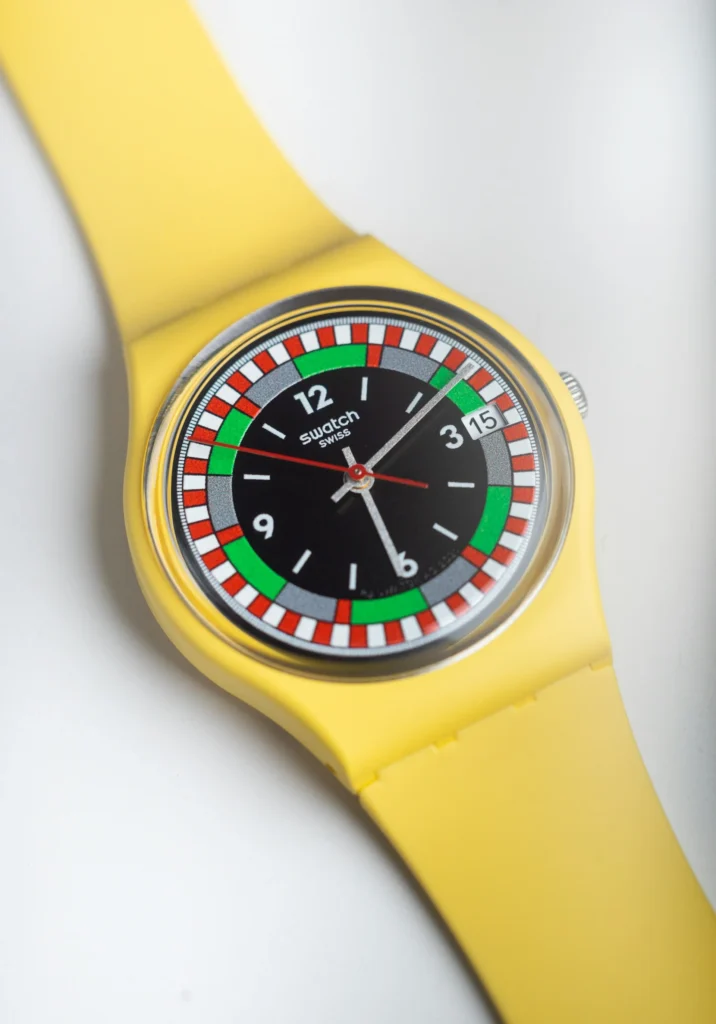
Brands like Swatch, Fossil, and Casio are known for fashionable and inexpensive casual watches. Features like interchangeable straps, colorful dials, and flashy numerals add quirky personality. Large watch faces and bold numerals also make casual watches easy to read at a glance. Offering a range of affordable and cheerful styles, casual watches are the perfect timekeeping accessory for laidback environments and weekends full of adventures.
2. Dress Watches (9)
Dress watches epitomize timeless elegance and sophistication. Sleek cases and minimal dials create an accessory refined enough for black-tie affairs. Historically, brands like Patek Philippe, A. Lange & Söhne, and Cartier, Vacheron Constantin created lavish dress watches in precious metals and jewels for the nobility and the wealthy. Today, dress watches continue to symbolize style and prestige. Thin cases and discreet leather straps slide neatly under a shirt cuff. Sparkling diamonds and decorative guilloché patterns adorn dials with graceful simplicity.
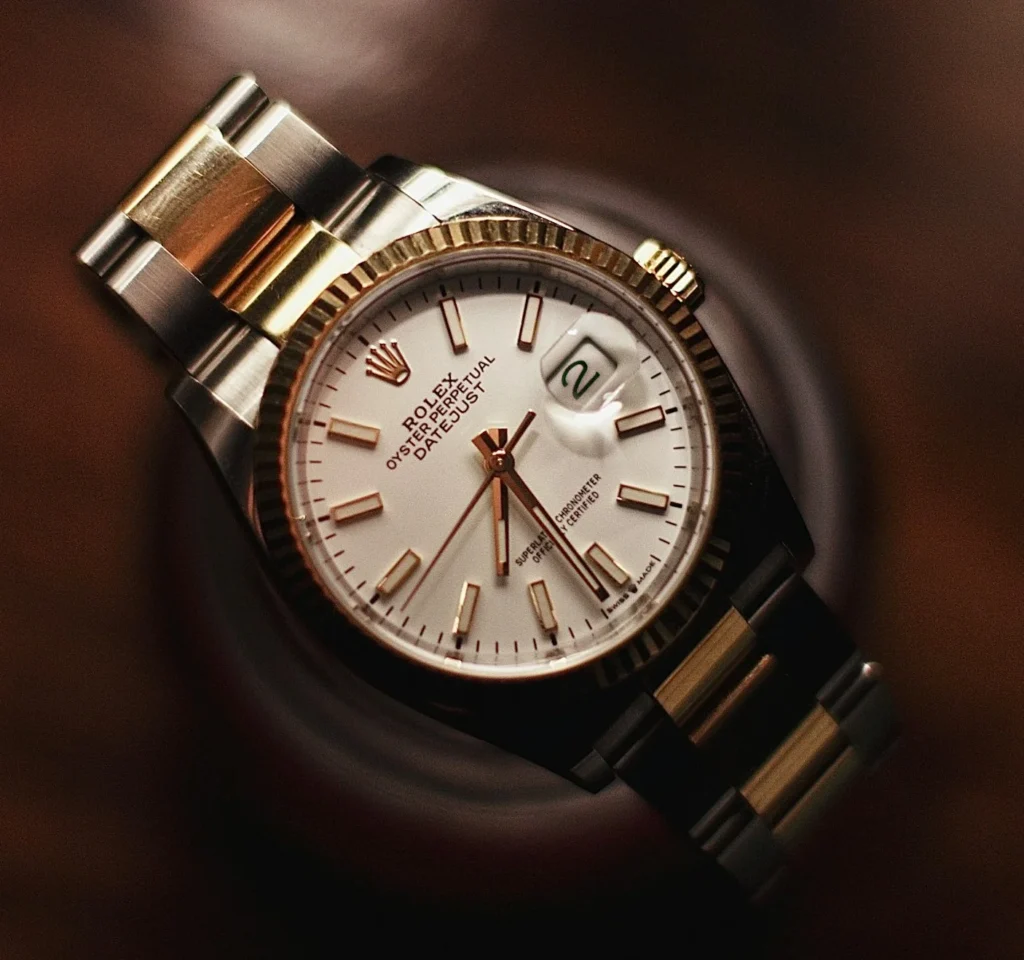
Luxury dress watches from brands like Rolex and Omega favor classic round cases, often with Roman numeral indexes. More affordable brands like Hamilton, Tissot, and Seiko also make elegant dress watches with leather straps and clean dials. Complications like moon phase indicators provide subtle intrigue.
From Boardroom to ballroom, the restrained beauty of a dress watch complements the formal style. In an age of smartwatches, dress watches uphold traditions of craftsmanship and discretion for occasions demanding cultured refinement.
3. Luxury Watches (10)
Luxury watches represent the pinnacle of artisanal watchmaking. Crafted by prestigious brands like Patek Philippe, Audemars Piguet, and Vacheron Constantin, they combine precision engineering with exquisite design.
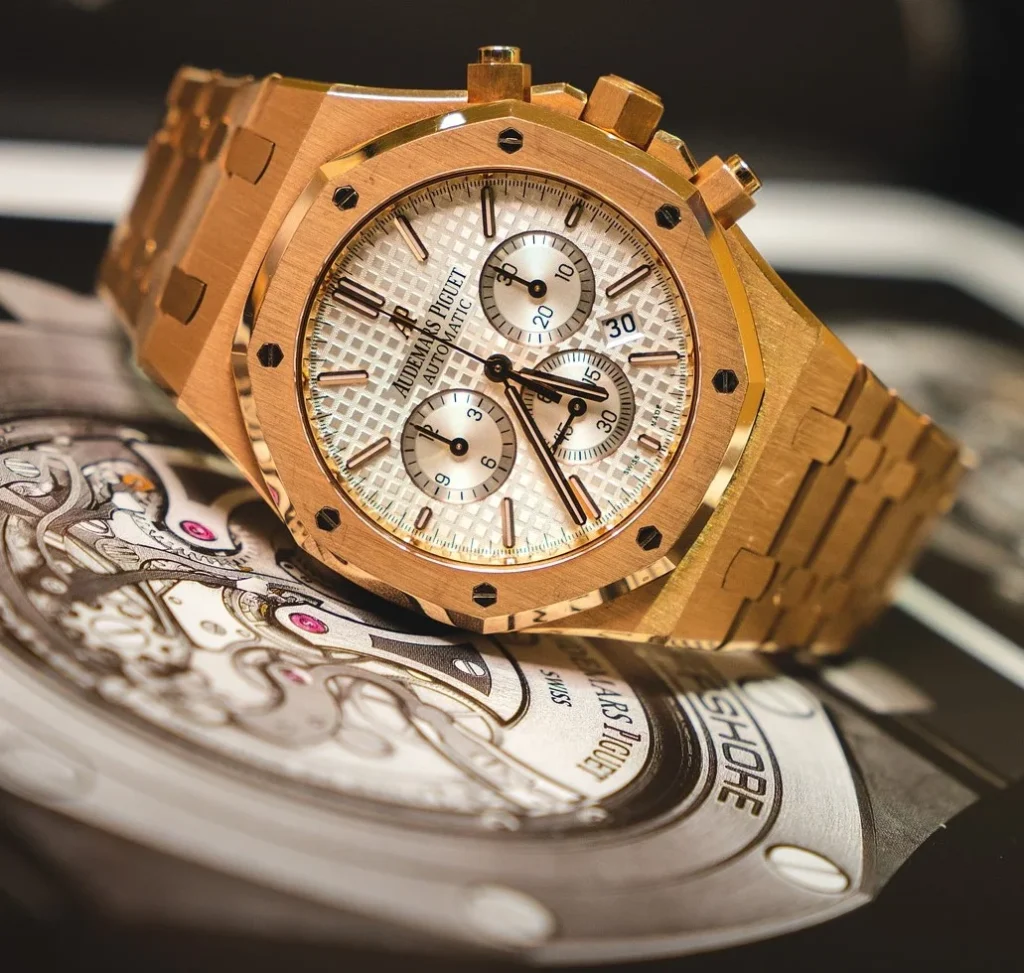
Luxury watches often feature precious metals like gold, platinum, and titanium for the case and bracelet. Complications like perpetual calendars, minute repeaters, and tourbillons demonstrate master watchmaking skills. Movements are decorated with hand-engraving, gem-setting, and enameled art. Skeletonized dials provide a window into the complex mechanics.
Luxury watches are status symbols valued for their superiority in technical innovation and expert craftsmanship. Limited edition runs make them exclusive accessories. For discerning collectors, luxury timepieces are works of functional art to treasure. Brand heritage and meticulous construction elevate them into passion investments worthy of family heirloom status.
4. Dive Watches (11)
Dive watches are specifically designed for underwater activities like scuba diving and snorkeling. They are characterized by their rugged, durable construction and water-resistance capabilities. First popularized in the 1950s by Blancpain’s Fifty Fathoms, dive watches retain a sporty yet stylish appeal for everyday wear.
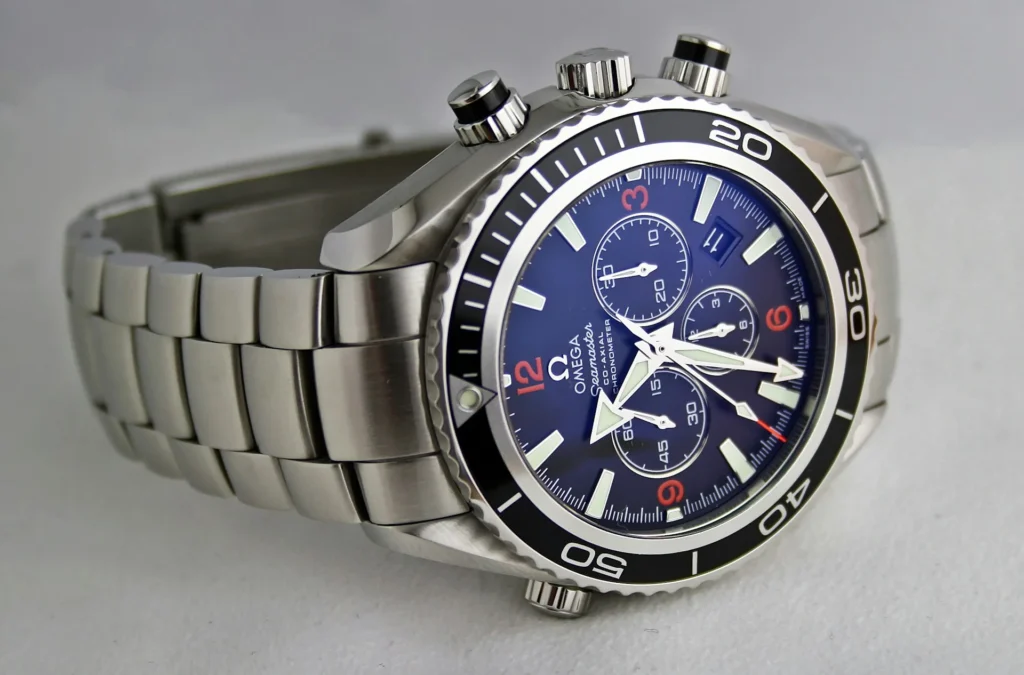
One of the main advantages of dive watches is their exceptional water resistance. They are built to withstand the immense pressures of deep diving, often rated to depths of 200 meters or more. Dive watches also come equipped with handy features like rotating bezels to measure dive times and luminescent hands/markers for easy readability in murky waters.
Another key advantage is their durability. Dive watches are constructed from corrosion-resistant materials like stainless steel or titanium to endure the rigors of saltwater diving. They can withstand bumps and scrapes with their sturdy builds. Many dive watches incorporate useful functions as well like chronographs, alarms, date displays, and helium release valves for safe decompression.
Leading brands like Rolex, Omega, and TAG Heuer make iconic luxury dive watch models, while affordable brands like Seiko, Citizen, Tissot, and Invicta offer more budget-friendly dive watch options. With a utilitarian design perfected for the pressures of the ocean, dive watches bring rugged adventure styling to the wrist whether underwater or on land.
5. Pilot Watches (12)
Pilot watches are designed for aviation with bold, highly legible dials for instant reading, an essential pilot feature. Rotating bezels time flight operations and complications like chronographs track important timing. Anti-magnetic cases and sapphire crystals add durability to aerial adventures. Pilot watches carry the legacy of aviation history through their designs. In the early days of flight, pilots relied on rugged, accurate watches to aid critical in-flight operations.
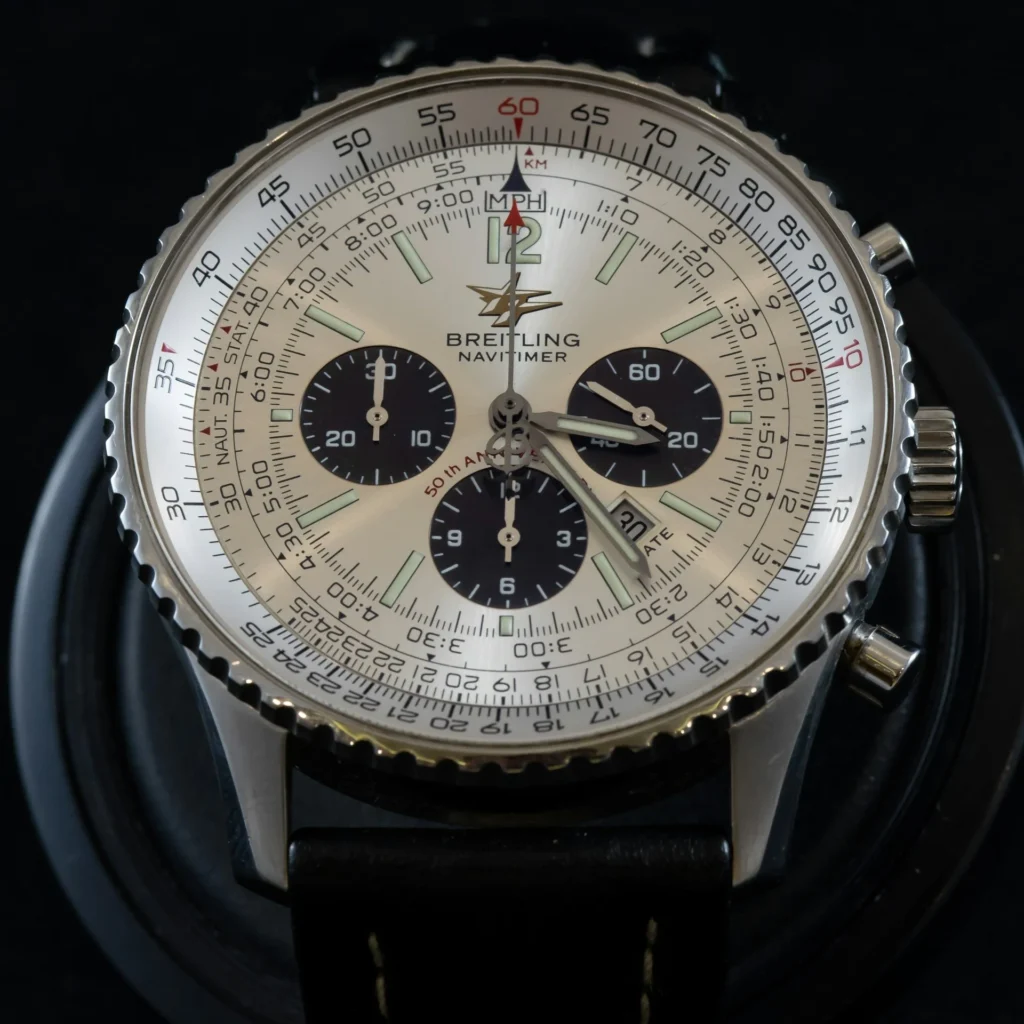
Leading brands like IWC and Breitling supplied watches to military forces. However, as electronic navigation became standard, mechanical watches were no longer required cockpit tools. Today, pilot watches celebrate aviation heritage as precision mechanical jewelry. While not literal aviation equipment today, well-designed pilot watches evoke the era when watches were essential aeronautic tools. Modern pilot watches fuse durability and style as a wearable homage to mankind’s age of pioneering flights.
6. Military Watches (13)
Military watches, also known as field watches, are designed to endure extreme environments and offer tactical functionality. They draw inspiration from the watches used by soldiers and sailors during World War II and have become a symbol of rugged durability.
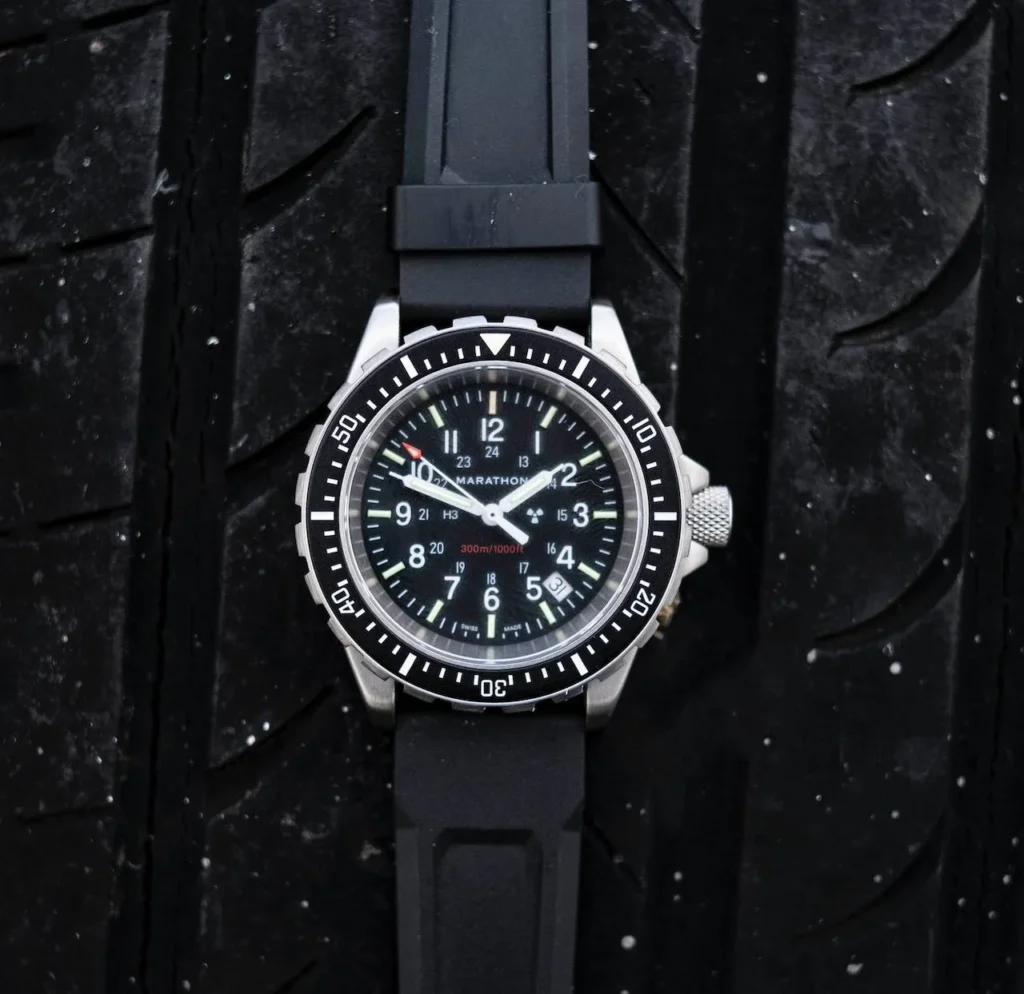
Brands like Hamilton, Marathon, and Luminox have been providing watches to armed forces globally. Key features of military watches include anti-shock systems, titanium cases, and Tritium illumination, which enable optimal performance during combat and training. Military personnel relied on these timepieces to coordinate missions and keep track of critical timing in the field.
Although early military watches like the WWII-era A-11 pilot watch were issued equipment, today’s military watches serve more as a tribute to military history and a fashion statement. Vintage military models from eras past now hold collector allure as tangible history. With utilitarian styling pedigree, military watches influence modern fashion as icons of resilience and purpose-built design.
7. Racing Watches (14)
Racing watches, also known as chronograph watches, capture the thrill of high-speed motorsports. Designed with auto racing in mind, they boast features like stopwatch functions, tachymeter bezels to measure speed, and bright color accents evocative of racing liveries.
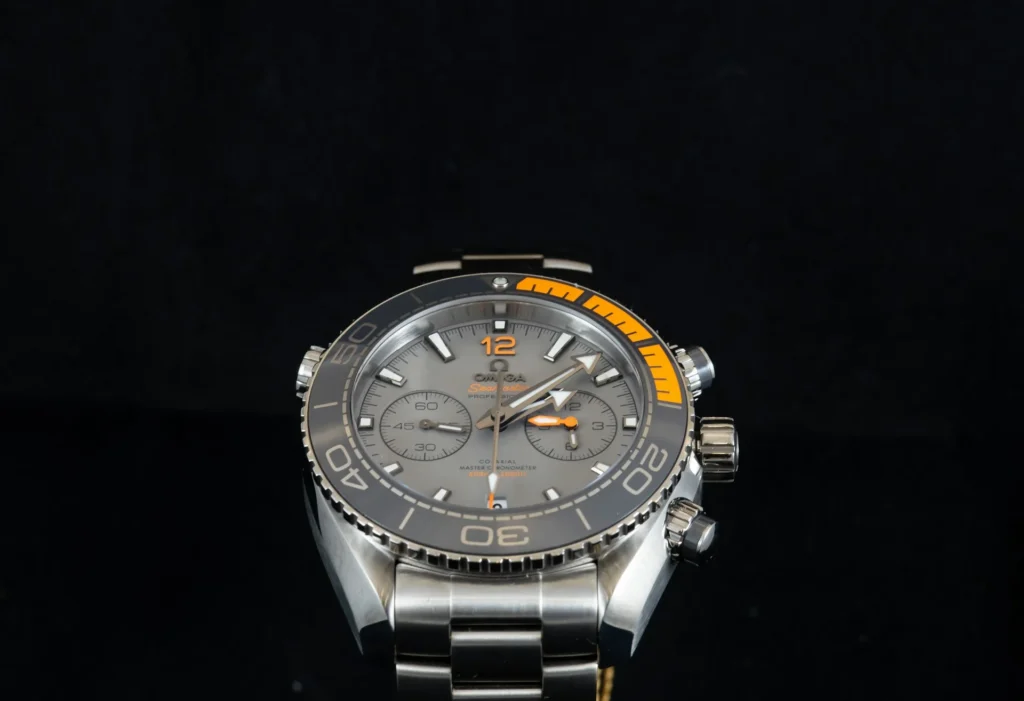
Leading brands like TAG Heuer and Omega time iconic events like Formula One and the Rolex 24 at Daytona. The chronograph is integral for timing laps and pit stops. Carbon fiber and titanium offer lightweight durability.
Vintage models celebrate icons like Mario Andretti and Steve McQueen whose daring driving defined an era. Modern racing watches add advanced materials and electronics while retaining sporty style. With an aesthetic born from the track, racing watches fuse precision timing with the adrenaline and luxury of auto sports. Their bold, driver-inspired designs make them popular accessories both in and out of the cockpit.
8. Sports Watches (15)
Sports watches are designed for active lifestyles and athletic pursuits. Durable materials like stainless steel, rubber, nylon, and silicone resist wear during workouts and competitions. Bold style elements like oversized cases, striking colors, and textured bezels express dynamic fashion.
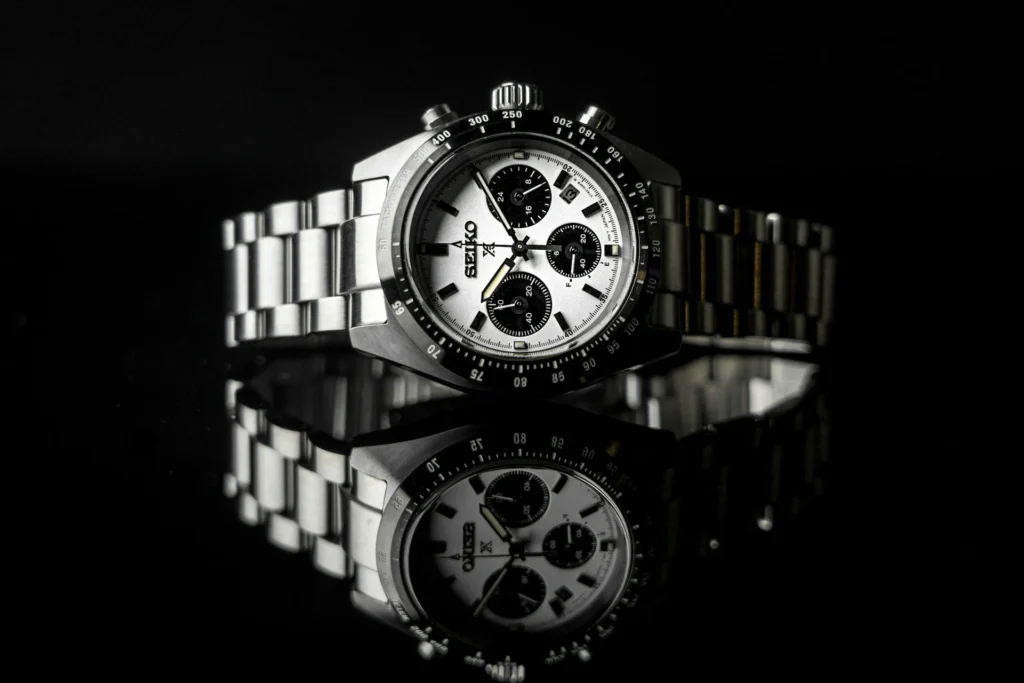
Sports watches prioritize features like water resistance, alarms, lap timers, and heart rate tracking for fitness functionality. Leading brands like Garmin, Suunto, and Polar specialize in high-performance GPS sports watches with advanced training metrics and smart connectivity. More affordable brands like Timex and Casio offer versatile fitness watches packed with features.
9. Chronometer Watches (16)
Chronometer watches adhere to strict standards of mechanical precision and accuracy. They are certified by Switzerland’s COSC (Official Swiss Chronometer Testing Institute) to meet high benchmarks for timekeeping. To earn a chronometer designation, the movement must run within -4 to +6 seconds per day, an impressive feat of engineering.
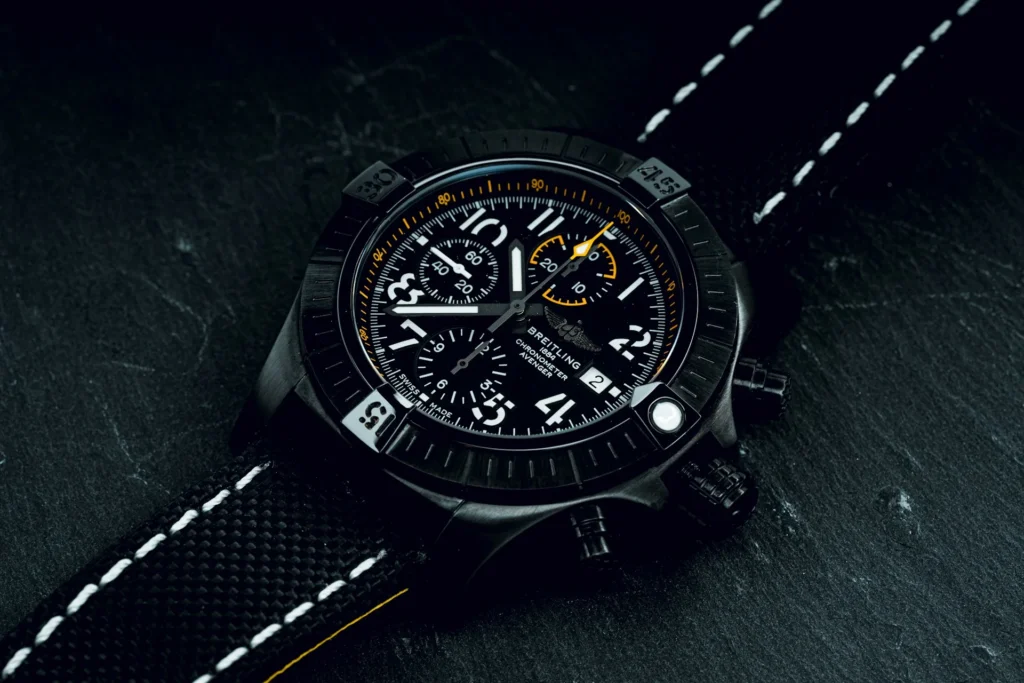
Leading Swiss watchmakers like Rolex, Omega, and Breitling submit their mechanical watches for rigorous chronometer testing. The certification assures a timepiece’s reliability and performance. Some brands use “chronometer” to denote high accuracy, though not every chronometer watch is COSC-certified. Either way, chronometer ability highlights a watch’s superior timekeeping capabilities through meticulous craftsmanship and adjustments. For discerning watch collectors and enthusiasts, the chronometer designation denotes a higher echelon of mechanical excellence.
10. GMT Watches (17)
GMT watches, short for Greenwich Mean Time, are watches that have a 24-hour hand and a rotating bezel or a second-time zone display. They are designed to provide the convenience of monitoring two locations at once – for example, local and home time.
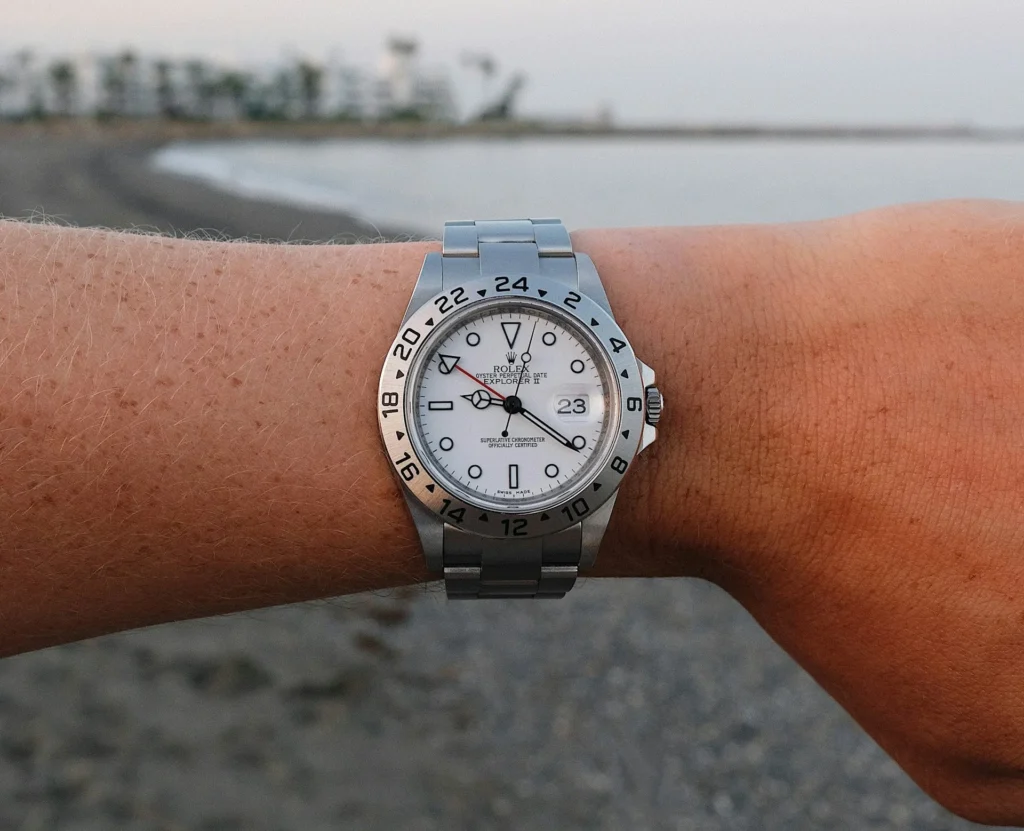
Leading brands like Rolex, Omega, and TAG Heuer make iconic GMT models. The straightforward functionality of the GMT complication appeals to frequent fliers and globetrotters. However, GMT watches also appeal to watch enthusiasts for their dual-time mechanical ingenuity and elegant multi-colored dials.
Modern models may include further enhancements like independent hour hands and world time displays covering many time zones. With origins in aeronautics, the GMT remains a popular complication keeping travelers grounded in more than one place at once.
11. Moon-Phase Watches (18)
Moonphase watches showcase a complication displaying the different phases of the lunar cycle. An aperture on the watch face tracks the waxing and waning moon using a disc engraved with moon phases. This complication needs to be adjusted periodically to stay in sync with the astronomical moon.
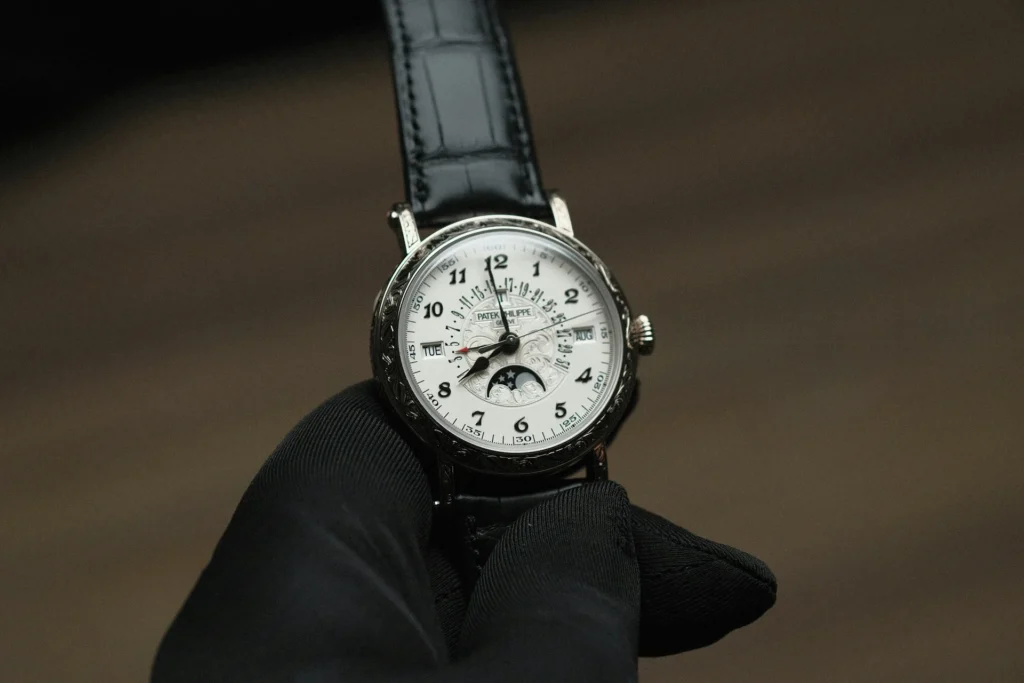
Moonphase indicators first appeared in clocks in the 16th century before being miniaturized for watches. Today, high-end watchmakers like Patek Philippe, Omega, and Oris craft ornate moon-phase watches, some with meteorite or aventurine dials depicting the night sky. The poetic moon-phase complication appeals to romantic aesthetes and nature lovers. With origins tracing back centuries, the moon phase remains a sentimental horological complication celebrating our eternal fascination with Earth’s celestial companion.
12. Open-Heart Watches (19)
Open-heart watches feature cutout dials revealing the watch’s inner workings. The cutout offers a peek into the regulation mechanism, balance wheel, or escapement beating at the heart of the timepiece. Skeletonized, aperture dials first appeared in pocket watches in the 17th century. Today, open-heart features create intrigue and showcase watchmaking craftsmanship.
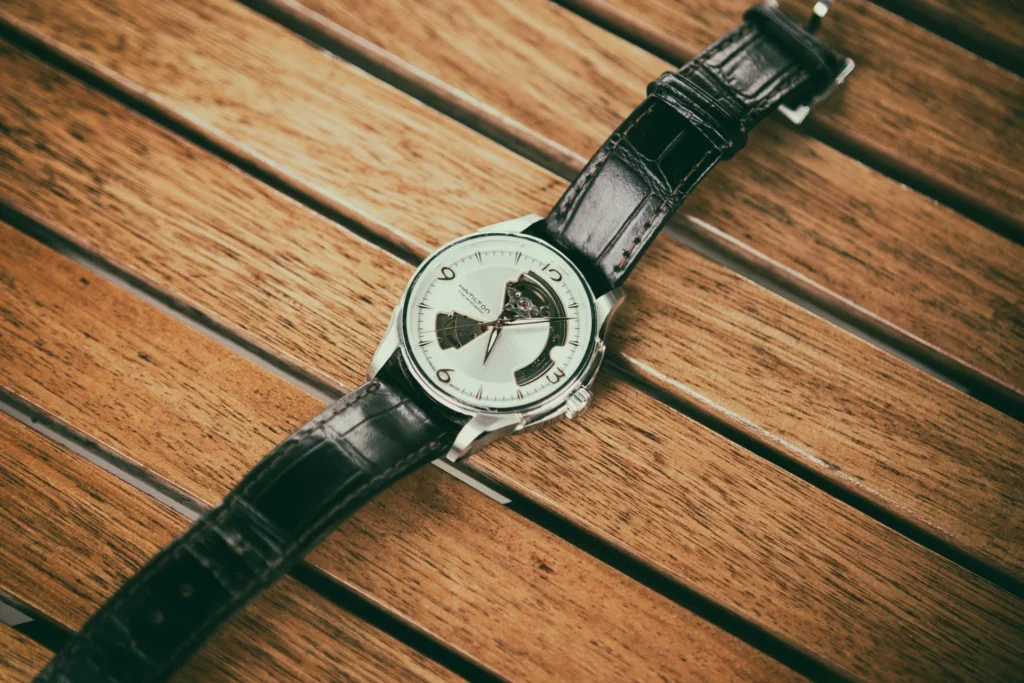
Watchmakers like Hamilton, Orient, and Frederique Constant craft fashionable open-heart models. The exposed mechanics attract enthusiasts who appreciate the horological artistry. There’s mesmerizing drama in seeing a watch’s beating balance wheel at work. Yet open-heart watches remain sleek enough for daily wear. With mechanical theater on full display, open-heart timepieces blend aesthetic sophistication with hypnotic mechanical insight.
13. Vintage Watches (20)
Vintage watches possess an old-world appeal that continues to captivate collectors and enthusiasts. Typically defined as watches from an earlier era spanning the early 1900s to the 1980s, vintage timepieces exhibit unique characters. Stylistic hallmarks include patina dial finishing, smaller case sizes, and design details from past decades.
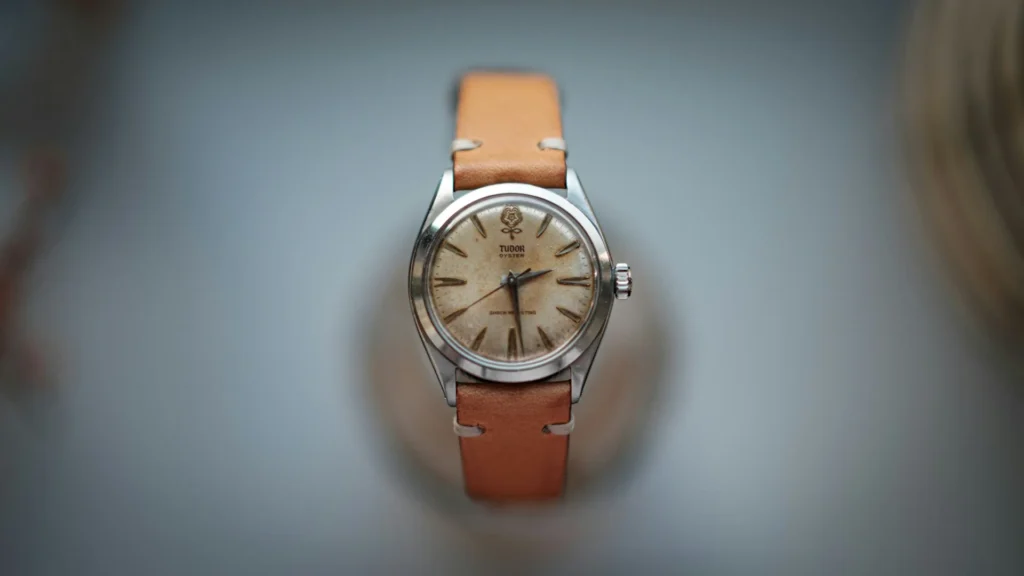
Vintage Models of Rolex, Omega, Tudor, and Patek Philippe are sought-after for their historical significance. The appeal lies in owning a small piece of horological history. Vintage watch collecting also emphasizes rarity – uncommon models or limited production runs hold prestige. As functional antiques, vintage watches demonstrate superior craftsmanship standing the test of time. Their classic styling calls to mind bygone eras, imbuing vintage watches with nostalgic allure.
14. Pocket Watches (21)
Pocket watches were portable timepieces carried in waistcoats or trouser pockets before wristwatches became popular. Dominant from the 16th century until World War I, pocket watches conveyed prestige and sophistication. Intricate engraving and ornamentation transformed utilitarian timekeepers into jewelry for gentlemen.
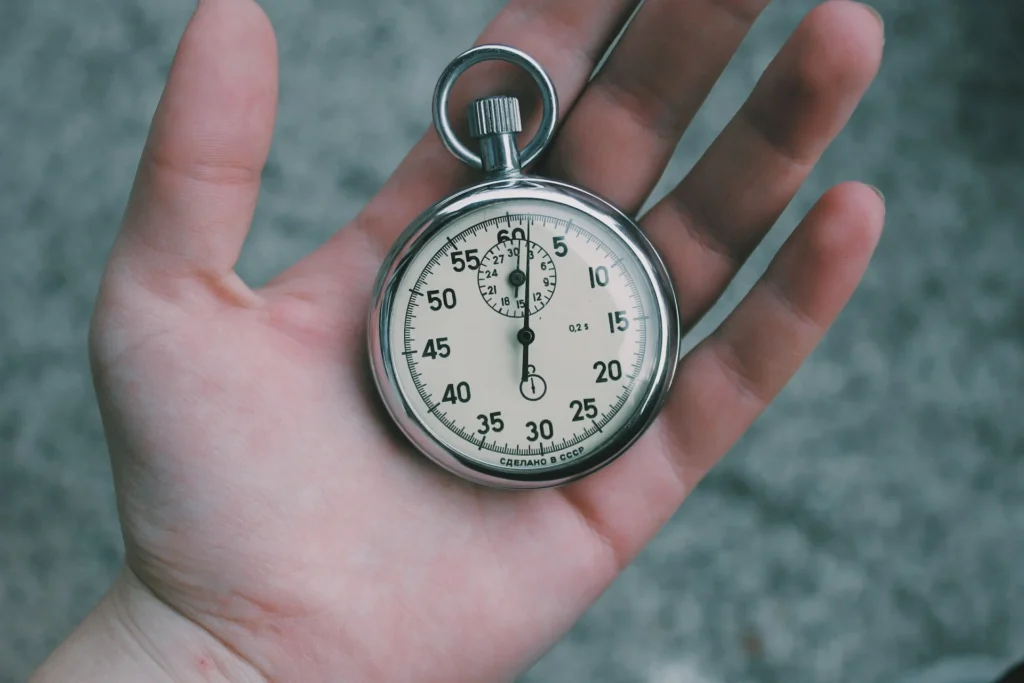
Pocket watches displayed craftsmanship with features like skeletonized faces revealing complex movements. Key winding and setting mechanisms evolved from keys to crowns. Brands like Patek Philippe, Vacheron Constantin, and Elgin drove innovations from chronographs to minute repeaters. While supplanted by wristwatches, pocket watches are appreciated for their nostalgic allure. Collectors admire their ornate cases and refined movements as antiquarian treasures. With artisanal appeal, pocket watches represent the pinnacle of old-world watchmaking and a bygone era of style.
15. Smartwatches (22)
Smartwatches are wearable technology that integrates interactive features and connectivity. They run on their own operating systems and offer capabilities like apps, notifications, activity tracking, music control, and payments.
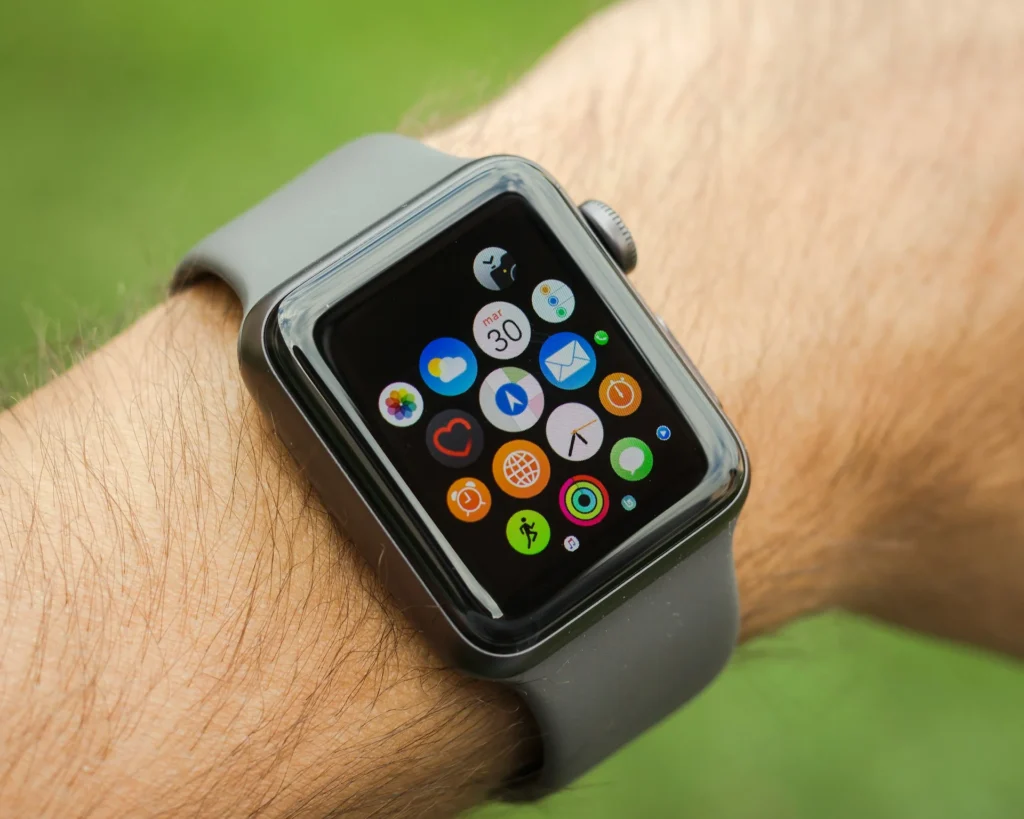
Leading smartwatch brands include Apple, Samsung, and Fitbit. Display styles range from full touchscreens to hybrid analog-digitals. Smartwatches link to smartphones to receive notifications and synchronize information. Advanced models feature independent cellular connectivity and standalone apps. With fitness tracking and health features, smartwatches enable users to monitor wellness data like heart rate, sleep, and more. The latest offerings also focus on design evolution with sleek, stylish cases and bands. Equally functional accessories and mini on-the-go tech devices, smartwatches represent the cutting edge of wearables innovation.
Conclusion
From elegant dress watches to rugged diving companions, this tour through watch types reveals the breadth of horology. Every category carries its own stories of innovation, function dictating form. While wristwatches no longer fill an imperative technological role, they remain beloved accessories.
The enduring appeal stems not just from timekeeping, but also from the craft, complexities, and history encapsulated in these portable mechanisms we wear. Whether an heirloom dress watch passed down generations or a smartwatch loaded with all the conveniences of modern tech, watches retain their place on our wrists. They also retain their power to captivate, as any collector or enthusiast knows.
From boardrooms to beaches, watches continue their long relationship with humanity as wearable art both engineering-driven and culturally expressive. Time marches on, but thanks to dedicated watchmakers the enduring magic of watches lives on as well.
FAQs:
Dive watches have high water resistance, rotating bezels to track dive time, luminous markers for legibility underwater, and durable designs.
Pilot watches have large dials with high legibility, extra functions like chronographs, and designs inspired by aviation history.
Rugged materials, anti-magnetic properties, luminescent dials, and water resistance make field watches ideal for outdoor activities.
A chronometer is a certification given to watches with movements that meet high precision standards when tested.
GMT watches have an extra hour hand linked to a 24-hour scale to display a secondary time zone.
A chronograph is a watch complication that acts as a stopwatch with start/stop functions and timing displays.
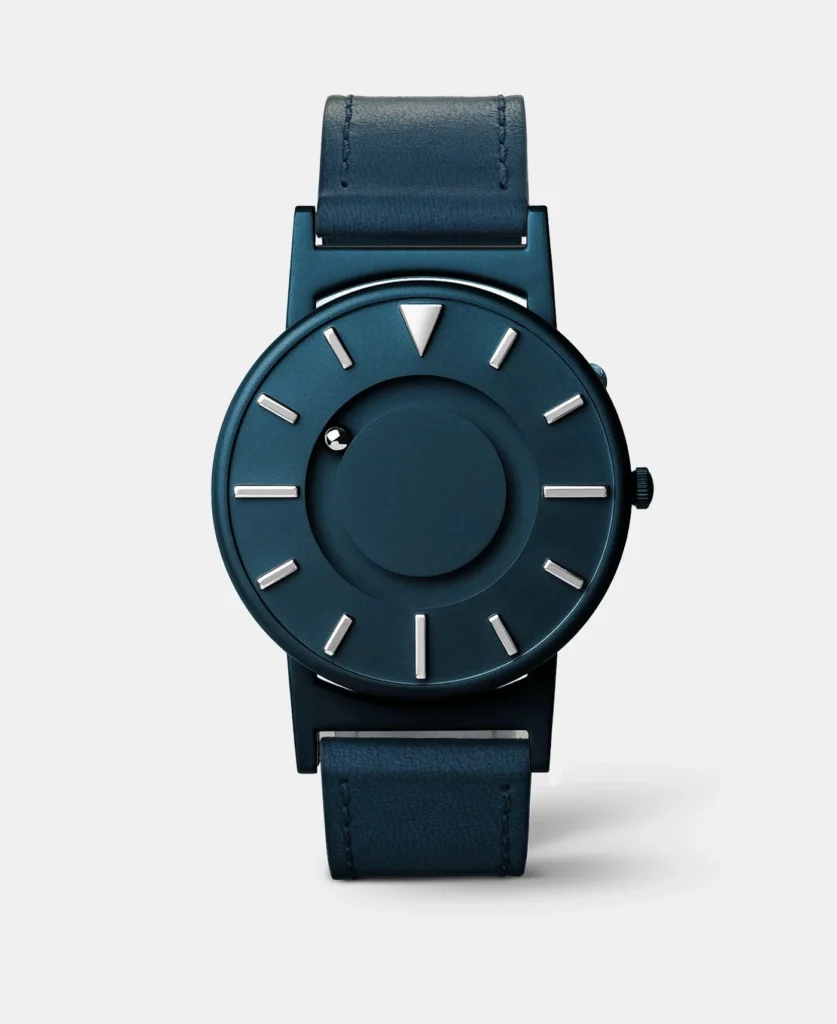
Thanks for this great article! I’m interested in chronograph watches and am wondering if you have any recommendations for someone looking for their first budget chrono watch at around $200 or less? Not looking to spend a ton but want something reliable and stylish. Appreciate any suggestions!
Excellent choice for a first timepiece, Raphael! Some really great budget chronograph options under $200 are the Seiko SSB031, Citizen AN3394-59L, and Timex MK1. These all offer very reliable quartz chrono movements, eye-catching dials, and good water resistance at an affordable price point.
Great overview of the different watch types! I’m looking for a durable watch for hiking, camping, and outdoor adventures. Would you recommend a military watch or dive watch for this use case? Trying to decide which would be more suitable to stand up to the elements while still looking stylish.
Thanks for reading, Joanne! For outdoor adventure and active use, I’d likely recommend a military or field watch over a dive watch. While dive watches are very durable, field watches tend to have a more wearable size and versatile style for everyday use outside of water. Brands like Hamilton and Marathon make excellent rugged field watches built to last through all kinds of adventures at very reasonable prices.
I enjoyed your overview of the watch styles. One suggestion – it would be great if you offered 3-4 specific watch recommendations for each category, at different price points. This would give readers some direction on models to consider. Just an idea to make it even more practical and informational!
Luz, thanks for the thoughtful suggestion! I’m glad you found the overview of watch styles helpful. You make an excellent point – providing specific watch recommendations in each category at different price points would make the post even more practical and informational for readers. I have actually written dedicated recommendation posts for some specific watch types like dive watches, dress watches, field watches, sports watches, etc. So please check out those posts for my top picks. And I definitely plan to create recommendation guides for each major watch category in the future as well to give readers that type of direction. Thanks again for the feedback – it will help me continue improving my content and give watch enthusiasts more of the practical advice they’re looking for! I appreciate you taking the time to offer such a constructive perspective.